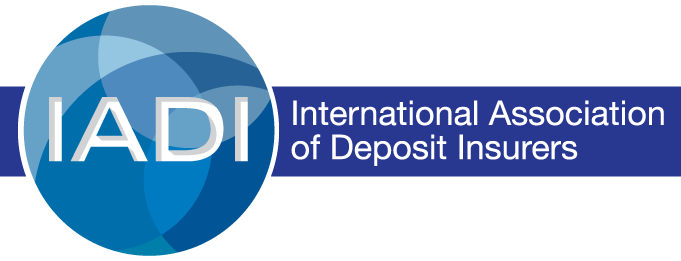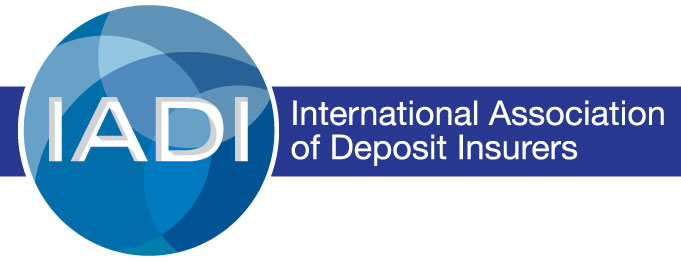4 July Tbilisi, Georgia
Alfredo Pallini
Vice Chair of the IADI Executive Council
Chairperson, IADI Europe Regional Committee
Good morning, everyone.
I am very pleased to open the IADI Eurasia and Europe International Conference, kindly hosted by the Deposit Insurance Agency of Georgia.
I would like to express my sincere gratitude to the organizers and to the Chair of the Georgian Deposit Insurance Agency, Levan Todua, who preceded me in the opening speech.
Let me also thank all the IADI staff whose efforts and commitment enabled us to hold this EARC-ERC joint event.
Unfortunately, due to an acute back pain I cannot be with you in Tbilisi in person these days. Nevertheless, I am grateful for the opportunity to speak to you virtually. Georgia and the entire Eurasian region have demonstrated a strong commitment within the IADI community. This makes Tbilisi an ideal location to discuss our latest developments and the ambitious yet rewarding path ahead for deposit insurance systems.
I would like to take the next few minutes to share some thoughts on the theme of the Conference: ‘Deposit Insurers and Bank Resolution: State of the Art and Future Challenges’.
Nearly a year ago, the failure of First Republic Bank in the US brought significant attention to what has later been referred to as the ‘2023 banking turmoil.’This event led to a comprehensive examination by supervisors, regulators, resolution authorities, central banks, and standard setters, including IADI. In December 2023, IADI released its report on lessons learned, highlighting four critical areas: i) deposit insurance design, ii) the interplay between deposit insurance and resolution, iii) coordination within the financial safety net, and iv) the impact of digitalization. As a consequence of the 2023 banking turmoil, IADI temporary stopped the revision of the Core Principles for Effective Deposit Insurance Systems, launched in 2022. The process was resumed at the EXCO meeting in Basel last February, with a new Workplan and a new Chair, Leah Anderson, President and CEO of CDIC Canada. The scope of the re-opening of the work to review Core Principles is to include forward looking elements to ensure that CPs remain relevant and effective in the evolving financial environment and adaptable to ongoing and rapid changes in financial systems due to technology and other emerging trends.
The further review should also address the issues identified in the lessons learnt report as well as other issues warranted by recent developments, taking into account the reports of other international bodies.
Works are conducted by the Chair and the High-Level Steering Committee composed of Member Designated Representatives from different regions to ensure a balanced geographical and institutional representation.
The Committee will focus on some key areas such as coverage, reimbursement, resolution, and coordination within the financial safety net. Furthermore, the need for stronger coordination within the financial safety net and improved crisis preparedness is recognised, emphasising the importance of deposit insurers’ access to data on deposit flows.
Turning to the 2023 banking turmoil, we observe that the recent banking crises clearly warned how the rise in digital innovations and consequent changes in depositor behaviour accelerated the change from the ‘bank run’ to the ‘bank click run’.
In this rapidly evolving landscape of global finance, the roles of deposit insurers and bank resolution mechanisms are more critical than ever. As we navigate through the complexities of economic fluctuations, technological advancements, and regulatory changes, it becomes imperative to reflect on our current practices and anticipate future challenges.
Robust bank supervision and an efficient deposit insurance system are the best lines of defence against a banking crisis and fundamental components of a functioning financial safety net. Deposit Insurers are essential to contain the likelihood of banking panics and are therefore a key policy feature for ensuring financial stability. Moreover, by collecting funds from the banking industry they help to shift the cost of insurance from the public finances to the banking industry itself.
Furthermore, in our increasingly interconnected world, cooperation between deposit insurance systems and other safety-net participants, together with the enhancement of information-sharing, are a pivotal development. This alignment facilitates smoother and more efficient resolution processes, minimising disruptions to the financial system.
Within this framework, it is crucial to have all the tools available and mechanisms to promptly intervene in case of banking crisis. The introduction in January 2024 of the Crisis Management Policy document by the Georgian Deposit Insurance Agency is a relevant step to effectively respond to the risks that could undermine Deposit Insurers functions in case of banking turmoil.
Before concluding, let me provide you a brief overview of the process of revision of the Crisis Management and Deposit Insurance (CMDI) framework, currently ongoing in the European Union.
On 18 April 2023, the European Commission published a proposal for the review of the framework, putting forward amendments to three legislative acts which constitute the Single Rulebook, the unified regulatory framework for the EU financial sector.
The legislative acts under revision are the following: i) the Bank Recovery and Resolution Directive (BRRD); ii) the Deposit Guarantee Schemes Directive (DGSD); iii) the Single Resolution Mechanism Regulation (SRMR) 806/2014.
One year after the publication of the European Commission’s proposal, on 24 April 2024, the European Parliament, meeting in plenary, approved its position at first reading, introducing amendments to the 2023 European Commission’s proposal. Few weeks ago, on 19 June, the EU Council in turn agreed its position and a negotiation mandate. The process will now move on to the stage of interinstitutional negotiations known as “trilogues” between Parliament, Council and Commission.The revision of the CMDI framework appears to be of crucial importance, as any choice will have a direct impact on the operations of the Deposit Insurers, for this reason European Deposit Insurers are closely monitoring this process.
In conclusion, I return to the review of the IADI Core Principles. This review represents an opportunity to solidify IADI’s role as a global standard-setting body. Our goal is to enhance deposit insurance systems worldwide, ensuring they effectively protect depositors and contribute to financial stability in our increasingly digital world. I am confident that the insights and discussions from this conference will be invaluable to our work.
Thank you for your attention. I wish you all a productive and interesting conference.

